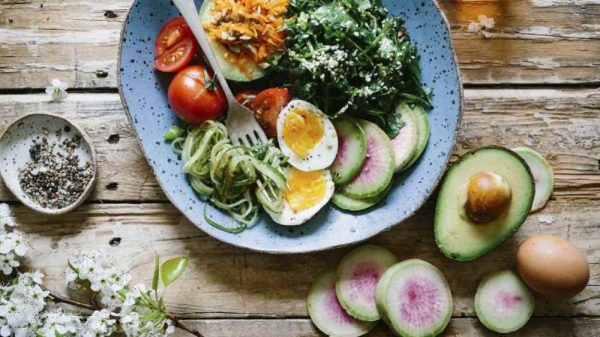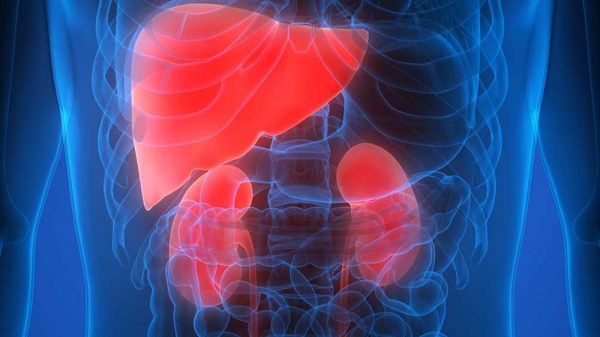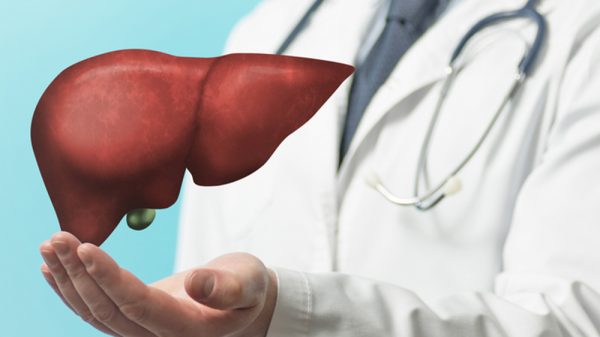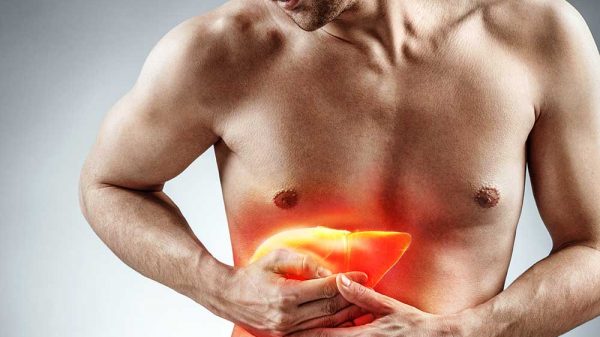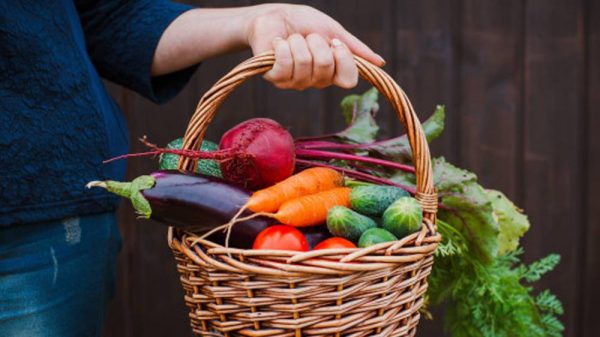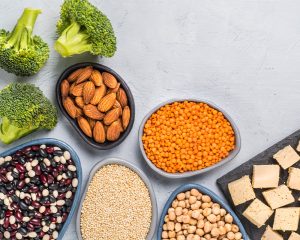Do you have fatty liver disease? Going vegan may be a great option for you. Following a vegan diet has many health benefits and may play a role in reversing fatty liver disease. However, it’s important to follow the right kind of vegan diet in order to see the positive effects that you want. So, what is the best vegan meal plan for fatty liver disease? Here we give you the best vegan meal plan to follow if you have fatty liver disease, including tips and meal ideas. Read on to find out more!
What Is Fatty Liver Disease and Why Is the Vegan Diet Helpful?
Fatty liver disease is a common condition that affects millions of Americans. If you have fatty liver disease, this means that fat is accumulating in your liver cells. Generally, fatty liver disease is categorized into nonalcoholic fatty liver disease (NAFLD) and alcoholic fatty liver disease. A sedentary lifestyle and diet high in fat and sugar are the contributing factors to NAFLD, while excessive and chronic alcohol consumption is the contributing factor to the development of alcoholic fatty liver disease.
In theory, the vegan diet is an excellent diet to follow for fatty liver disease because it increases your intake of healthy foods like fruits and vegetables while decreasing your intake of unhealthy ingredients like added sugar and saturated fat. A vegan diet can help lower inflammation, improve metabolic function, stabilize blood sugar levels, improve digestive health, and promote liver repair.
However, the positive effects of the vegan diet only apply if you follow the right kind of vegan diet for fatty liver disease. How can you make the best vegan meal plan for fatty liver disease? Here are the tips for creating a vegan meal plan that helps mitigate fatty liver disease.
Tips for Making the Best Vegan Meal Plan for Fatty Liver Disease
Are you wondering how you can successfully create and follow the best vegan meal plan for fatty liver disease? Here are tips from foods you should choose at the grocery store to ideas for vegan meal prep.
1. Choose Whole Foods Over Processed Foods
When following a plant-based diet, it’s critical to choose whole foods over processed foods. Packaged foods have often undergone processing to remove nutrients like protein, fiber, and micronutrients. There are tons of foods in the grocery store that are marketed as “vegan,” yet they are packaged, processed, and filled with unhealthy ingredients like added sugars and refined grains. Eating large amounts of processed foods – vegan or not – can worsen metabolic conditions and fatty liver disease.
It’s important to instead reach for whole foods that have been subjected to no processing or only minimal processing. The bulk of your vegan diet should include foods like veggies, fruits, beans, nuts, seeds, and whole grains. These whole foods offer the nutrients your body needs for healthy metabolic and liver function.
2. Get Balanced Ratios of Essential Amino Acids
Getting enough protein is not the problem on the vegan diet. Contrary to popular belief, when eating a well-balanced and varied vegan diet, you will usually get plenty of grams of protein. However, the challenge is ensuring that you’re getting optimal ratios of essential amino acids from the protein you’re eating.
What are essential amino acids and why are they so important for fatty liver disease? Essential amino acids are building blocks of protein that the human body requires on a daily basis to carry out numerous biological processes. For example, the body utilizes essential amino acids in the synthesis of muscle tissue, connective tissue, hormones, enzymes, and neurotransmitters.
Essential amino acids are also crucial for liver health and may play a vital role in reversing fatty liver disease. In fact, research published in Nutrition found that essential amino acid supplementation was linked to lower levels of blood triglycerides, cholesterol, and liver fat, in comparison to the control trial. (1)
Animal products like meat and dairy offer optimal ratios of essential amino acids in a single serving. On the other hand, plant proteins must be combined throughout the day to ensure that you’re getting the essential amino acids the body needs. High protein vegan foods include nuts, seeds, whole grains, and beans. Tofu and tempeh are soy-based products that are rich in protein and work well as meat substitutes in a variety of recipes. Seitan is another high protein vegan food made with wheat gluten, though this is not a good option if you need to follow a gluten-free diet.
3. Eating a Variety of Plant-Based Foods
You could eat only lettuce and call it a vegan diet. However, eating only one food, such as lettuce, is unhealthy because it deprives the body of critical nutrients and calories for energy. It’s vital to consume a wide variety of plant-based foods, including fruits, veggies, whole grains, nuts, seeds, and beans to get the nutrients and calories that your body needs. Keep in mind that eating a low-carb, vegan diet can be particularly restrictive. Instead of cutting carbs altogether, avoid refined carbohydrates and instead stick to complex carbohydrates like whole grains, sweet potatoes, and fruit that offer tons of fiber, vitamins, minerals, and antioxidants.
4. Write Down a Weekly Meal Plan
Sticking to a plant-based diet can be tough if you don’t plan ahead. Plan out what you’d like to eat for each meal and determine what ingredients are needed for each meal. You could even try making a few different weekly meal plans that you can easily alternate throughout the month. It’s also helpful to determine whether certain meals can be meal prepped for the week in advance, to help you save time and energy.
5. Make a Shopping List
After making your weekly meal plan, it’s helpful to then go through your fridge and pantry and check off items you already have on hand, while writing down the items you need on a shopping list.
6. Make Up for Missing Nutrients
Individuals following a plant-based diet may be at a higher risk of certain nutrient deficiencies. In particular, vegans may be more likely to be deficient in vitamin D and vitamin B12. Vitamin D can be obtained from fortified foods, moderate sun exposure, or supplementation. Vitamin B12 is tough to find in food and is best obtained from supplements.
7. Buy Frozen Fruits and Vegetables
When you are following a vegan diet, fruits and vegetables are significant staples. However, a common complaint is that fruits and vegetables go bad very quickly. To combat this issue, keep the freezer stocked with frozen options. Keeping these items on hand makes it easier to follow a vegan meal plan and successfully meal prep. Plus, frozen fruits and veggies retain most of their nutrients, making them excellent alternatives to fresh produce.
8. Keep a Variety of Containers on Hand
To make the meal planning and meal prepping process easier. Make sure to have a variety of different container sizes and shapes on hand, including divided containers for meals with multiple ingredients, small containers for salad dressings, and jars for overnight oats.
9. Get Good at Using Leftovers and Extra Items
Leftovers and other random items – like that pasta salad from last night, the jar of olives sitting in the pantry, or the sad stalk of celery in the vegetable drawer – may be easy to toss in the garbage. Instead, try combining these items in a large green salad with your favorite oil and vinegar dressing. You then have a whole extra meal that you can throw together in a pinch! Being scrappy and using leftovers and extra items can help stick to the plant based diet while making the most of your healthy ingredients.
Vegan Meal Ideas for Fatty Liver Disease
Not sure what to eat on the vegan diet for fatty liver disease? Here we give you plenty of tasty and easy recipe ideas so you can help your liver recover from fatty liver disease.
Vegan Breakfast Ideas
These breakfast ideas offer plenty of protein, antioxidants, and fiber to help you fight fatty liver disease.
Overnight Oats
Overnight oats are easy to prepare in advance so you can have hearty, nutritious breakfasts every morning of the week. First, add a serving of whole oats to a sealable container. Next, add ground chia seeds and ground flaxseeds for omega-3 fatty acids, fiber, and minerals. Stir in an assortment of your favorite fruit and nuts, like blueberries, raspberries, and crushed walnuts. Cover the mixture with a generous portion of soymilk or almond milk, and stir until combined. Place the top on the container and store it in the refrigerator overnight. In the morning, you’ll have a perfect breakfast meal. If desired, top your oats with a drizzle of maple syrup, for extra sweetness
Chia Seed Pudding
Like overnight oats, chia seed pudding can be easily prepared in advance. To make chia seed pudding, add whole chia seeds, coconut milk, and vanilla extra to a container. Stir the mixture thoroughly, to ensure that all chia seeds are covered in coconut milk. Allow the pudding to sit overnight. In the morning, top your chia seed pudding with sliced bananas, blueberries, almonds, and a drizzle of maple syrup.
Toast with Nut Butter
Short on time in the mornings? A simple meal of toast and nut butter is healthier than you might think. For example, the pairing of whole-grain toast and peanut butter offers all of the essential amino acids that you need. To mix up the flavors, try topping whole-grain toast with almond butter or cashew butter, as well as sliced bananas.
Avocado Toast with Vegan Scrambled “Eggs”
If you’re in the mood for a filling breakfast, try this avocado toast and vegan scramble. Prepare your avocado toast by topping a slice of whole-grain bread with half of a ripe avocado. Using a fork, mash the avocado onto the bread and sprinkle with lime juice, salt, pepper, red pepper flakes, and cilantro.
Next, prepare your vegan scrambled eggs using tofu or tempeh – both of which are great sources of vegetable protein. Add tofu or tempeh to a pan and drizzle with olive oil. Saute until lightly browned and season with turmeric, curry powder, garlic powder, salt, and pepper. Turmeric is particularly rich in antioxidants and anti-inflammatory agents, helping to combat fatty liver disease. Plus, turmeric gives your scramble a vibrant yellow hue, similar to real scrambled eggs.
Vegan Lunch Ideas
Need vegan lunch ideas that you can bring to work and on the go? We have you covered! Here are healthy vegan lunch options to support liver health.
Arugula Salad with Sun-Dried Tomatoes and White Beans
Arugula greens and sun-dried tomatoes are high in antioxidants that help support liver health while also supporting metabolic function. Toss arugula, sun-dried tomatoes, white beans, pumpkin seeds, nutritional yeast, and hemp seeds in a container. Pair with a dressing made with olive oil, lemon juice, salt, pepper, and fresh chopped herbs. When you’re ready to eat lunch, simply pour the dressing over the salad and mix well.
Burrito Bowl
Vegan burrito bowls are easy to meal prep and make a delicious, nutrient-packed lunch. First, prepare a vegetable and tofu mixture by sauteing onions, bell peppers, zucchini, mushrooms, spinach, and tofu in a pan. Season the mixture with garlic powder, chipotle chili powder, cumin, salt, and pepper. To assemble your burrito bowl, add brown rice, the veggie and tofu mixture, avocado, chopped lettuce, chopped tomatoes, and black beans to a container. Top with cilantro and a squeeze of lime to prevent oxidation and subsequent browning of the avocado.
Vegetable Pita Pocket
A pita pocket is an easy way to get plenty of protein and vegetables at lunchtime. First, line a whole-grain pita wrap with lettuce leaves, to prevent the bread from getting soggy. Next, prepare homemade hummus by combining chickpeas, garlic cloves, olive oil, tahini, salt, pepper, and paprika in a blender or food processor. Spread the homemade hummus on the lettuce leaves. Pack the pita pocket with a variety of vegetables of your choice, like tomatoes, cucumber, spinach, red onions, and bell peppers. To increase the protein content of the pita pocket, add vegan falafel or seasoned tofu. For extra flavor, drizzle with lemon juice and olive oil.
Vegan Dinner Ideas
These vegan dinner recipes offer tons of plant-based protein and antioxidants to encourage better metabolic function and improvements in fatty liver disease.
Vegetable Tacos
This plant based dinner idea is a delicious, nutrient-packed version of tacos. To make sure you’re getting the protein you need from these tacos, prepare a ground meat substitute by pulsing tofu, black beans, and crushed walnuts in a food processor. Next, lightly saute the mixture and season it with chili powder, cumin, garlic powder, salt, and pepper. To prepare your tacos, use whole-grain tortillas and fill them with your tofu mixture and a variety of vegetables, like onions, red cabbage, bell peppers, spinach, and jalapenos if you like spicy flavors. Top the tacos with avocado, salsa, chopped cilantro, and a squeeze of lime.
Pasta Salad
This light plant based dish is perfect for the summer season and can be prepared with any seasonal vegetables. First, prepare a whole-grain pasta of your choice, such as fusilli, cavatappi, or penne pasta. If you want to increase the protein content of the pasta, choose a pasta prepared with chickpeas or lentils.
Next, add a variety of vegetables and legumes, such as onions, roasted red peppers, bell peppers, wilted spinach, white beans, and sunflower seeds. Toss the fresh pasta, vegetables, and tofu with a dressing made with olive oil, champagne vinegar, oregano, basil, red pepper flakes, salt, and pepper.
Tofu and Vegetable Stir-Fry
This tasty dish offers protein and antioxidants, and only requires one pan to make! First, saute slices of firm tofu as well as vegetables like onions, broccoli, bell peppers, carrots, cauliflower, and spinach. Prepare the sauce by pouring light coconut milk in the pan with turmeric, curry powder, chopped ginger, chopped garlic, salt, and pepper. If desired, serve the stir-fry over brown rice or quinoa.
Vegan Snack Ideas
Wondering what you can eat for a snack when following a vegan diet? Here are a few ideas.
Apple and Peanut Butter
Top slices of apple with a serving of peanut butter. The sweet and savory ingredients complement one another while offering vitamins, minerals, antioxidants, and protein.
Popcorn
Contrary to popular belief, popcorn is actually a very healthy snack when prepared the right way. Popcorn offers plenty of fiber and is higher in protein than you might think. To prepare a healthy popcorn snack, cover the bottom of a small pot with popcorn kernels and a very small amount of oil. Cover the pot and place it on the stovetop, at high heat. When the kernels start popping, carefully move the pot around to distribute the heat before turning the heat off. When the popcorn is done, pour it into a bowl and lightly season with salt, pepper, and oregano.
Trail Mix
Trail mix is a high-energy snack option that you can easily eat on the go. Combine almonds and walnuts with a few dried cranberries and dark chocolate chips to make a homemade trail mix.
Vegan Smoothie Ideas
Smoothies and shakes are an easy way to fit tons of liver-friendly nutrients into one beverage. Smoothies can serve as a meal replacement, snack option, or post-workout fuel. Here are a few vegan smoothie recipes that offer optimal ratios of essential amino acids and tons of micronutrients, to support recovery from fatty liver disease.
Beet and Berry Smoothie
Did you know that you can get all the essential amino acids you need in a smoothie that also offers very few calories? To prepare this smoothie, combine frozen beet chunks, raspberries, and strawberries in a blender with water, ice cubes, and essential amino acid powder. Blend until smooth and enjoy.
Peanut Butter Banana Shake
This smoothie is a calorie bomb, making it perfect for meal replacements or post-workout fuel. Add a frozen banana, a serving of peanut butter, whole oats, essential amino acid powder, and soymilk
Mango Smoothie
This tropical smoothie is a thirst quencher while also offering optimal ratios of essential amino acids. Combine frozen mango, a peeled kiwi, frozen banana, and essential amino acid powder in a blender along with ice and almond milk.
Extra Tips for a Liver-Friendly Lifestyle
A well-planned vegan diet only works when you also make a few adjustments to your overall lifestyle. Here are a few tips for making sure that you’re following a liver-friendly lifestyle!
Weight Loss
If you are overweight and have fatty liver disease, weight loss is an important step for reducing inflammation and reversing fat buildup in the liver. If needed, strive for healthy weight loss by monitoring portion sizes and increasing your physical activity levels.
Avoiding Alcohol
In addition to eating a healthy diet for fatty liver disease, it’s also important to cut back on your drinking. This is an especially important step if you have been diagnosed with alcoholic fatty liver disease. Eliminating alcohol from your diet reduces oxidative stress and inflammation in the liver, allowing liver tissue to repair.
Keep in mind that it is dangerous to stop cold turkey if you are physically dependent on alcohol. Suddenly quitting drinking while physically dependent is dangerous and can result in serious symptoms. It’s crucial to seek medical attention and slowly wean yourself off alcohol.
Things to Keep in Mind
Going vegan is a great choice for fatty liver disease, when done right. Consulting your physician and a registered dietitian can ensure that you’re tailoring your meal plan to your specific needs.
Conclusion: The Best Vegan Meal Plan for Fatty Liver Disease
The best vegan meal plan for fatty liver disease is one that offers optimal ratios of essential amino acids and plenty of fiber, antioxidants, vitamins, and minerals. Since it can be challenging to get the essential amino acids you need from plant sources alone, supplementation may be helpful. Following a vegan diet by default eliminates a lot of unhealthy ingredients that harm metabolism and liver health, such as saturated fat found in fatty meat and dairy products. However, sugars and refined grains can still be considered vegan, so be sure to steer clear of processed vegan foods that include these ingredients. The plant based meals provided above help you form your own vegan meal plan for fatty liver disease, so you can support the reduction of liver fat and healthy liver function.
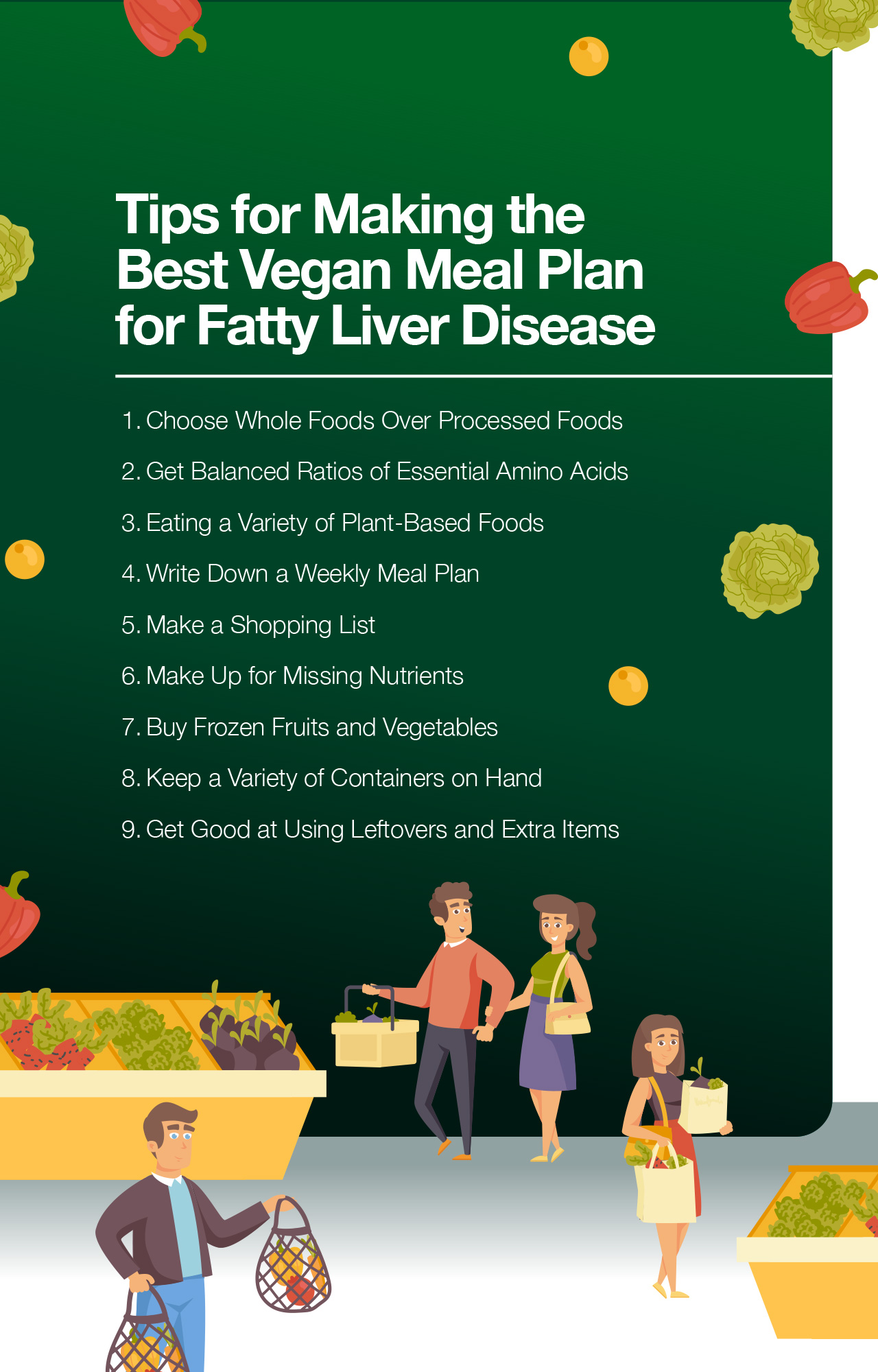
References:
